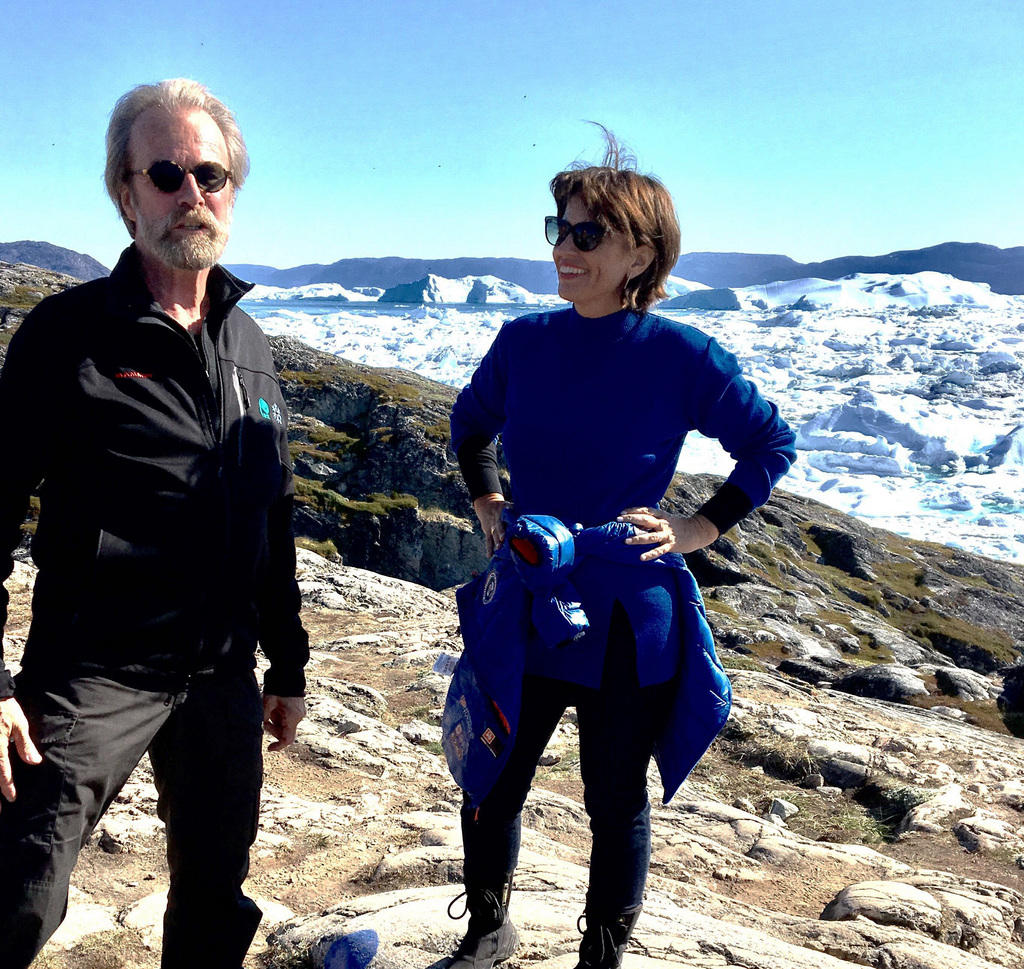Melting Arctic needs help from WEF high rollers

Transforming smoke-belching, river-polluting industrial dinosaurs into environmentally-friendly businesses is key to achieving the targets of the Paris climate accord, the World Economic Forum is hearing in Davos.
“The good news is that this is the biggest business opportunity that we have ever seen, but it is only an opportunity if we are able to harvest it in time,” Christiana Figueres, who has switched from leading the United Nations’ climate efforts to the NGO Mission 2020, told swissinfo.ch. “If we are too late is ceases to be an opportunity and becomes a burden on the most vulnerable populations.”

More
Can businesses rally to meet climate targets?
Figueres and others, including Swiss Solar ImpulseExternal link adventurer Betrand Piccard and former United States Vice President Al Gore, are lobbying Davos delegates to adopt greener strategies whilst encouraging cleantech start-ups to flourish.
The Paris climate agreement to keep global temperature rises below two degrees Celsius compared to pre-industrial levels was hailed as a pivotal point in the battle against global warming.
Last year, Swiss voters approved the government’s Energy Strategy 2050External link plan to scrap nuclear power plants, increase the share of renewable energies and make overall energy savings. Around 10% of all new Swiss start-ups are in the cleantech sector, according to the organisation CleantechAlps.
The number of cleantech start-ups actually fell in 2015 and 2016, but CleantechAlps believes this was due in large part to uncertainty over Switzerland’s energy policy. Now the Energy Strategy 2050 has been put into place, the cleantech start-up support agency predicts a rise in numbers.
Several Swiss companies also play a supporting role in the cleantech industry, for example by making parts for electric cars.
Back to Earth
Bertrand Piccard, who made history in 2016 with his round-the-world flight using only solar power, was busy in Davos seeking entrants for his new The World Alliance for Efficient SolutionsExternal link scheme to uncover 1,000 profitable clean energy projects to present to governments and industry by December.
“We want to show that we have enough solutions to halve C02 emissions,” Piccard told swissinfo.ch. “You have to link solutions for the environment with profit, job creation and economic growth and the political will to implement them.”

More
Showcasing the 1,000 best cleantech solutions
“Without centralised action at the governmental level, you will never reach the whole world with these solutions. You will only reach people who are already motivated to do this. And then these solutions would remain stuck in the start-ups.”
The drive to clean the planet has come not a moment too soon, according to a group of polar scientists gathered at the Arctic BasecampExternal link event in Davos for WEF. Polar ice caps are now melting all the year round, which will lead to dramatic rises in seas levels, they warned.

More
Davos adopts fast charging electric bus for WEF
“The cost of renewables has come down exponentially and we have seen their dissemination grow beyond any expectation,” said Figueres. “We have seen the switch from fossil fuel transportation to electric transportation in just the last three to four months in rates that we would never have imagined two or three years ago.”
Nature pillaged
While this is a promising start, the corporate world still needs to become more engaged, she added.
But Marco Lambertini, WWF International Director General, cautioned against a dependency on new technology to heal all wounds. There is still far too much dependency on fossil fuels and a tendency to pillage nature, he said.
“New technology can solve the problems that the old technology has created. It’s going to be a battle between cleantech versus old technologies,” he told swissinfo.ch. “But don’t think for a second that we can replace nature because it’s not possible.”
“The technological capacity to overwhelm and destroy nature is now in our hands. What would really help a lot is for governments to stop subsidising fossil fuels. We are still pumping several billions in taxpayer money into the oil industry every year. That has to stop.”

In compliance with the JTI standards
More: SWI swissinfo.ch certified by the Journalism Trust Initiative











You can find an overview of ongoing debates with our journalists here . Please join us!
If you want to start a conversation about a topic raised in this article or want to report factual errors, email us at english@swissinfo.ch.